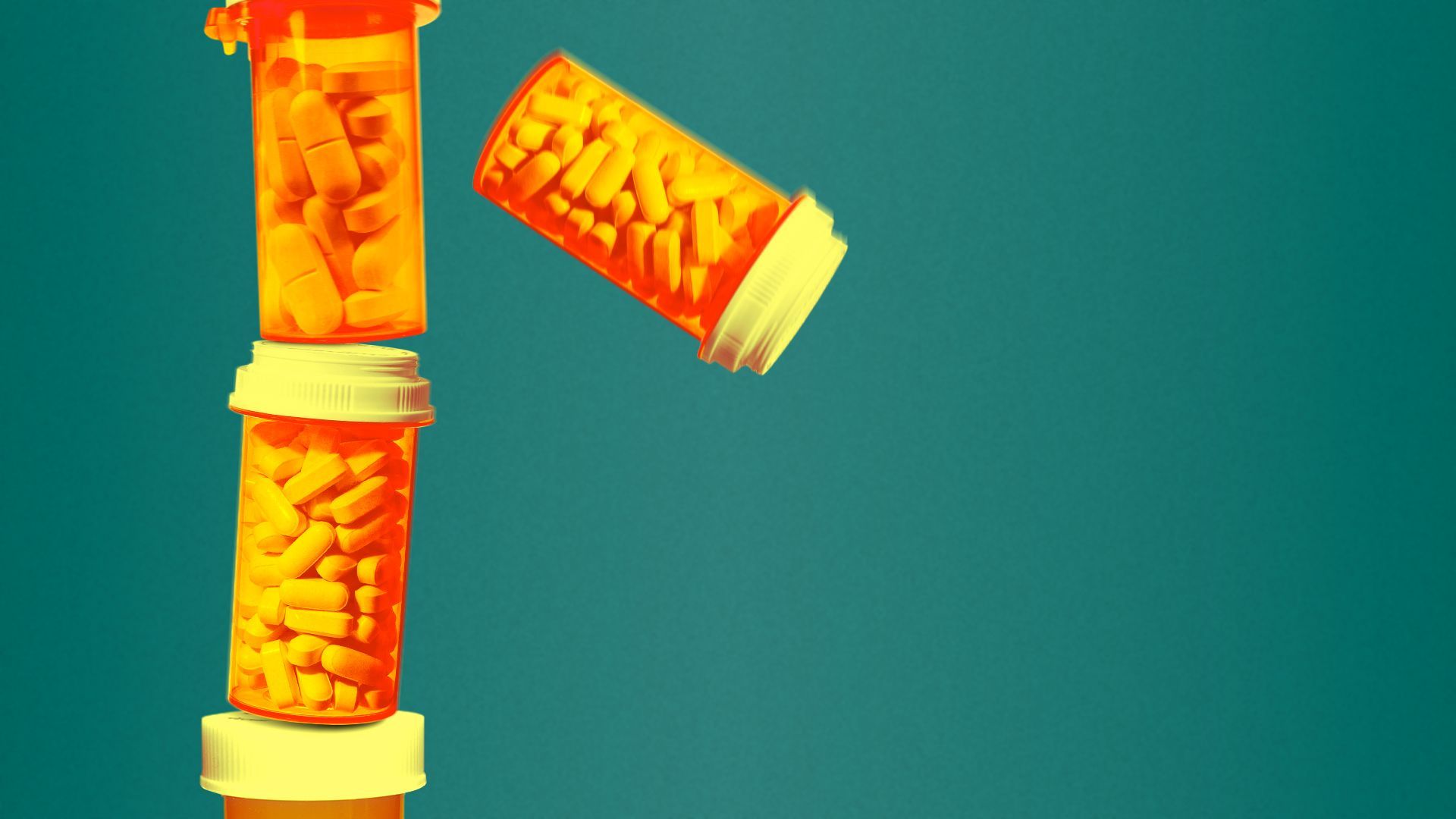|
||
| PRESENTED BY THE HEALTHCARE DISTRIBUTION ALLIANCE | ||
| Axios Vitals | ||
| By Tina Reed and Maya Goldman · May 22, 2025 | ||
|
Good morning. Today's newsletter is 968 words or a 3.5-minute read. |
||
| 1 big thing: Axios Harris Poll 100 — Pharmacy reputations drop | ||
| By Tina Reed | ||
 Data: Axios/Harris poll; Table: Axios Visuals With thousands of their brick-and-mortar stores closing and online vendors proliferating, big pharmacy chains like CVS and Walgreens are seeing their reputations slide, according to the annual Axios Harris Poll 100. Why it matters: The souring consumer sentiment comes as pharmacy giants mount major turnaround plans in the hopes they can overcome slumping in-store sales, overexpansion and backlash from putting more products under lock and key and shortening pharmacy hours.
Details: Retail pharmacy giant CVS ranked 57th in reputation score among the 100 brands survey respondents identified as most visible in the country today, down from 36th last year.
The big picture: In fielding the poll, Harris found 75% of Americans are concerned about health care today, and 38% believe care is getting worse.
Yes, but: The decline wasn't seen uniformly across health care. Brands like drugmakers Pfizer and Johnson & Johnson both saw improvements in their reputational scores. Of note: Rite Aid, which is in bankruptcy and in the midst of selling off assets to competitors, has not ranked in previous polls and did not rank this year. |
||
|
|
||
| 2. Big chains could pivot to corporate clinics | ||
| By Tina Reed | ||

|
||
|
Illustration: Megan Robinson/Axios |
||
|
As pharmacy giants look to find their footing, they could find opportunities customizing services to large employers instead of the mass consumer market. Why it matters: The industry is shrinking its footprint and pulling back from full-service care delivery. Experts say the biggest players could refashion themselves to become de facto in-house clinics to giant corporations. "We had a couple of years where costs were sort of not the first thing on everybody's minds," said Giesting of West Monroe.
Private equity is increasingly looking for ways to help business curb its health spending, and a growing number of smaller companies have found a niche in employer health clinics.
Between the lines: CVS Health could be a case study. It has shuttered locations, opened smaller format stores and remains in the midst of a cost-cutting turnaround strategy. But it is still looking for a way to bridge the pharmacy counter and traditional primary care, said Peter Bonis, chief medical officer at Wolters Kluwer Health. |
||
|
|
||
| 3. Bayer CEO says 2025 key for future of Roundup | ||
| By Tina Reed | ||

|
||
|
Anderson. Photo: Axios |
||
|
Bayer is fighting to keep the popular agricultural herbicide Roundup available for farmers in the U.S. but could "reach the end of the road" and pull out of the market amid mounting challenges, CEO Bill Anderson said at an Axios event on Wednesday night. Why it matters: Anderson said the chemical, known as glyphosate, has been repeatedly found safe and is "table stakes" for feeding the world.
Friction point: A report from President Trump's Make America Healthy Again Commission due out as soon as today is expected to target glyphosate and other agricultural chemicals. Between the lines: Bayer produces 40% of the world's supply of glyphosate in the U.S. and exports much of it, Anderson said.
|
||
|
|
||
|
A MESSAGE FROM THE HEALTHCARE DISTRIBUTION ALLIANCE |
||
| See how millions of medicines move through the supply chain each day | ||
|
|
||
|
Distributors connect 1,200 manufacturers to 330,000 healthcare providers, pharmacies and other sites of care across America. The results: They move over 10 million medicines through the supply chain each day and save the U.S. healthcare system up to $63 billion a year. |
||
| 4. FDA expands heart risk warnings on COVID shots | ||
| By Adriel Bettelheim | ||

|
||
|
Illustration: Sarah Grillo/Axios |
||
|
The FDA is requiring Pfizer and Moderna to expand warnings on the labels of their COVID-19 vaccines for the risk of heart inflammation in adolescents and young men. The big picture: The agency cited updated estimates of cases of myocarditis and pericarditis — inflammation of heart muscle and surrounding tissue — and a post-approval study showing the persistence of heart abnormalities months after getting the mRNA shots.
What they're saying: The agency said an analysis of insurance claims found an incidence of 8 cases per million doses for the 2023-2024 formulas of the shots.
Pfizer and Moderna didn't respond to requests for comment. Catch up quick: Heart inflammation has been a known, but rare, side effect linked to the vaccines since early in the pandemic. |
||
|
|
||
| 5. Catch up quick | ||

